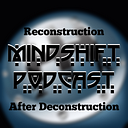Member-only story
Losing Your Faith: Coping with the Trauma of Deconversion
For those not raised within a religious framework, or who have never had experiences of religion as an adult, they may wonder why it is so difficult — and traumatic — for a formerly-religious person to lose his or her faith. It shouldn’t be any more difficult to drop one’s religious beliefs, the non-religious person might conclude, than it is when we become adults and no longer believe in the existence of such make-believe creations like Santa Claus, the Tooth Fairy, or unicorns.
When a former evangelical Christian becomes an atheist, for example, and no longer believes in the existence of God, surely that transition should be just about as simple. Sure, there might be some nostalgia attached to it: “I can’t understand how I used to believe in Santa Claus; now I don’t believe in God” — but it just can’t be that hard.
Or can it?
As it turns out, disentangling oneself from religion can be both incredibly difficult and distressing initially. It also may well take the rest of one’s life to process through the trauma, anger, grief and loss associated with making those choices.Whatever it is labelled, be it a “spiritual transition,” “deconversion” or a “religious divorce,” the fact is that it’s incredibly traumatic to lose one’s faith.
